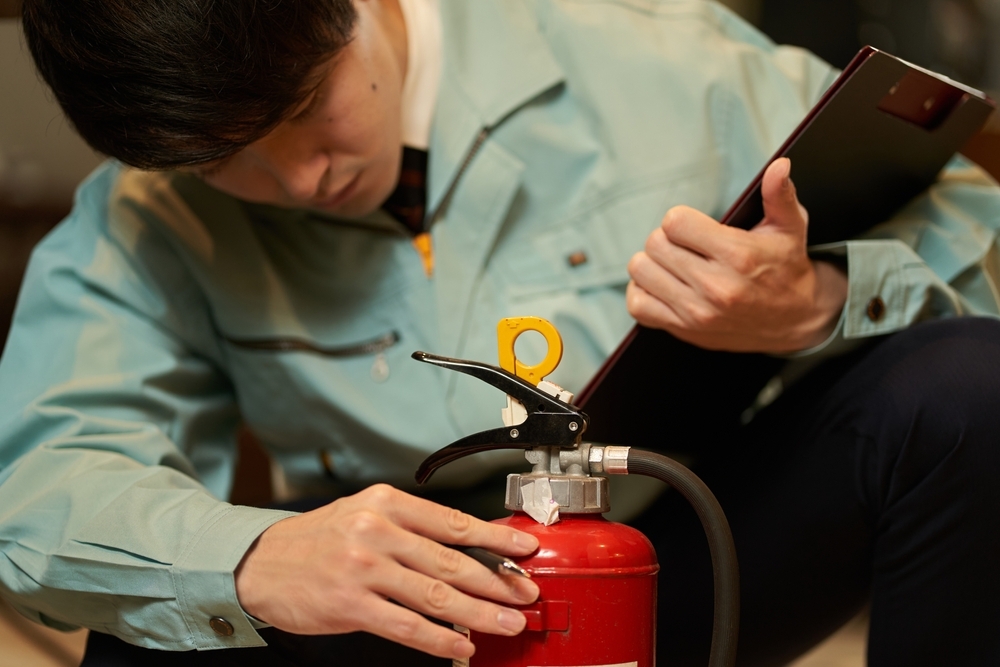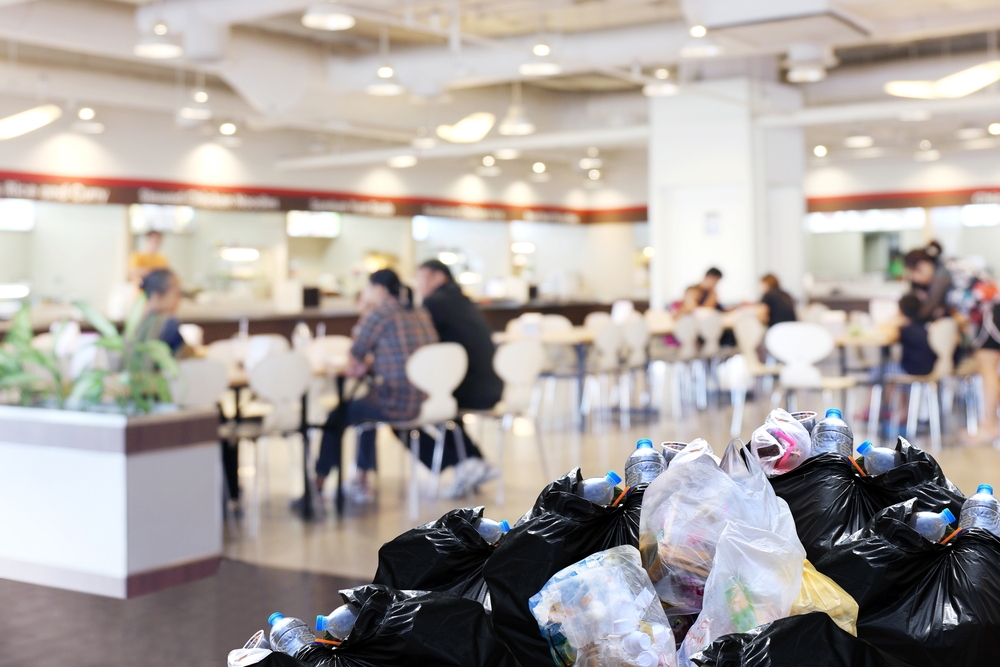Essential Guide to Opening a Cafe: Legal Requirements UK Entrepreneurs Must Know
By Hamza Benhlima · 12. March 2024
Opening a cafe involves a mix of excitement and dealing with some legal stuff.
This guide gives you a straightforward look at what you need to do legally to get your cafe up and running, covering everything from getting the right licences to making sure your food is safe to serve.
Ready to get started on your dream cafe?
Key Takeaways
- Before you can bask in the scent of brewing coffee, there’s a significant amount of paperwork to tackle, including getting a premises licence, registering with local food authorities, and securing additional permits if you plan on offering outdoor seating or serving alcohol.
- It’s crucial to adhere to food hygiene and safety regulations to prevent any mishaps; implementing HACCP control, aiming for a high hygiene rating, and providing proper training for your staff will help ensure your cafe’s environment is clean and safe.
- Don’t forget about sustainability and accessibility! Reduce waste in your cafe and ensure that your business is welcoming and accessible to everyone, much like offering a decaf option is.
Navigating the Licensing Landscape for New Cafes
 building permit
building permit
Starting your cafe adventure means diving into a pile of paperwork. To open a cafe in the UK, you need to navigate through some licences and regulations.
You’ll need a premises licence, to register with the local food authorities, and maybe some extra permits if you want to serve your customers outside or offer them a glass of wine.
We’re here to help you figure out all the legal stuff so you can start serving coffee without any legal hiccups!
Securing a Premises Licence
The premises licence is essential—it’s the key to opening the doors of your cafe.
You’ll need to fill in some forms, pay the required fees, and choose someone responsible with a personal licence to supervise the sale of alcohol and entertainment.
The local council will review your application, so it’s important to make sure everything is done right.
If there are no issues or objections, you’ll get your licence and can then focus on the more enjoyable aspects of running a cafe, like creating a welcoming place for people to enjoy great coffee and good company.
Food Business Registration with Local Authorities
Registering a food business with the local authorities is a necessary step in the journey to opening a cafe.
This step, which thankfully doesn’t cost a penny, can be done online. Just make sure to complete it at least 28 days before you plan to open the doors to your cafe business.
After you’ve registered, the local council, in partnership with the Food Standards Agency, will schedule a visit to your cafe for a food hygiene inspection.
This is to check that your food preparation meets the high standards of the UK’s food safety laws.
Additional Permits: Pavement and Alcohol
If you want your customers to enjoy their coffee outside or offer them alcohol, you’ll need to get pavement and alcohol licences.
These permits are important because they let you use the sidewalk for seating and serve drinks, which can attract more customers and make your cafe stand out.
Just remember to keep the sidewalk clear for pedestrians and make sure all your documents are in order, just like you’d keep your cafe tables clean and organised.
Adhering to Food Safety and Hygiene Regulations
 food safety
food safety
Before your cafe can serve its first cup of coffee, you must ensure that you comply with food safety and hygiene regulations.
Adhering to the UK’s Food Safety Act and setting up HACCP (Hazard Analysis and Critical Control Points) control systems is not just a legal requirement—it’s a crucial step in maintaining high standards of cleanliness and food safety.
A high food hygiene rating is not only a testament to your cafe’s commitment to health but also an asset in the highly competitive food industry.
Complying with Food Safety Legislation
Understanding food safety legislation is crucial for the successful operation of a cafe.
The HACCP system allows you to identify and manage potential food safety hazards in your food preparation areas.
This includes monitoring for biological, chemical, physical, or allergenic risks and having a plan to address each one.
Staff training is also vital, as it ensures that all team members are aware of the procedures to prevent cross-contamination and the importance of maintaining proper food temperatures.
Achieving High Standards in Food Hygiene Ratings
An excellent food hygiene rating for a cafe is as prestigious as a Michelin star for a restaurant—both are symbols of trust for customers.
To reach the upper echelons of the Food Hygiene Rating Scheme, you need to follow the 4Cs:
- Cleaning
- Cooking
- Chilling
- Cross-contamination prevention
It’s these practices that will not only keep your guests safe but also keep them coming back for more.
Health and Safety Compliance in the Cafe Sector
 fire extinguisher
fire extinguisher
When the steam clears and the ovens cool down, health and safety compliance remains a hot topic for cafes.
Apart from serving delicious coffee, your duty also entails providing a worry-free cafe experience to both patrons and staff.
From ‘No Smoking’ signs to annual gas safety checks, ensuring a safe environment is your recipe for a risk-free reputation.
Ensuring Employee Well-being and Safety
Your team forms the core of your cafe. It is essential for them to work in a setting that prioritises their health and safety.
Providing comprehensive health and safety training, which covers everything from handling heavy objects to maintaining food hygiene, is not just mandatory by law—it demonstrates your dedication to your employees’ welfare.
Fire safety is also a serious consideration. While a lively atmosphere is desirable, actual fires are not.
Ensuring proper fire safety measures are in place is crucial to prevent any real flames from disrupting your cafe’s warm ambiance.
Fire Safety Measures
Fire safety measures are a critical aspect of managing your cafe. It’s important to establish clear escape routes and ensure that fire extinguishers are accessible and ready for use.
Regular checks and staff training on how to handle potential fire situations are mandatory to maintain a safe cafe environment.
Environmental Considerations and Waste Management
 waste garbage
waste garbage
Stepping outside the four walls of your cafe, you start to think about the bigger picture.
How can your cafe do its part for the environment?
It’s about more than just serving good coffee—it’s about serving it responsibly.
Cutting down on waste, using less energy, and making smart choices about where your supplies come from can make a difference not just to your business, but to the whole community.
Reducing Your Cafe’s Carbon Footprint
Reducing your cafe’s environmental impact involves practical steps such as using LED lighting, investing in energy-efficient espresso machines, and sourcing ingredients from local producers.
These actions help to create a greener cafe operation and can also appeal to customers who are mindful of the environment.
Handling Waste Responsibly
In the world of waste management, heavy duty vehicles play a crucial role, and cafes can lead the charge by turning trash into treasure.
Partnering with licensed waste carriers and developing a comprehensive plan can not only minimise your environmental impact but also potentially turn food waste into energy.
Remember, a cleaner cafe starts with you—so keep it as spotless as your reputation for the best cafe in town.
Employment Law and Staffing Essentials
 cafe staff
cafe staff
Now, let’s get into the real stars of the show at your cafe—your staff.
Understanding employment law is super important for making sure everyone’s happy and knows what they’re supposed to be doing.
Hiring is not just about finding people who can make a mean cup of coffee; it’s also about getting your head around things like employment contracts and insurance.
It’s all about mixing the right people with the right rules.
Recruiting and Managing Your Team
Finding the right blend of personalities for your cafe is more art than science.
Crafting detailed job ads and conducting thorough interviews are the first steps in recruiting team members who share your vision for the perfect location and a thriving cafe culture.
And once you’ve assembled your dream team, managing them with fairness and respect becomes your daily grind.
Understanding Insurance Requirements
Before the first apron is tied, understanding your insurance requirements is crucial.
Employers’ liability insurance isn’t just a suggestion—it’s a must-have for any cafe with a team.
It covers those “just in case” moments, protecting you, your employees, and your customers.
Intellectual Property and Brand Protection
Your cafe’s name, logo, and even that catchy slogan are more than just branding—they’re the essence of your business’s identity.
In the competitive cafe industry, safeguarding these assets with trademarks is as important as having a reliable coffee supplier.
Securing Trademarks for Your Brand
Think of trademarks as the secret ingredient in your brand’s protection recipe.
They guard the unique elements that make your cafe special, like the froth on your cappuccino.
The process of registering a trademark is a blend of creativity and legal savvy, requiring a thorough search and precise categorization to ensure your brand stays uniquely yours.
Avoiding Infringement Issues
While securing your own trademarks is one side of the coin, ensuring you’re not stepping on anyone else’s intellectual property toes is equally important.
Conducting diligent research and possibly consulting with legal experts can prevent the bitter aftertaste of infringement issues, keeping your brand’s reputation as pristine as possible.
Financial and Tax Obligations for Cafe Owners
When it comes to the financial part of running your cafe, you’ll face various tax responsibilities and financial tasks.
Whether you’re a sole proprietor or running a partnership, it’s essential to manage your taxes well to keep your business healthy.
So let’s go over the financial details to ensure your cafe’s finances are as strong as your coffee.
Registering with Companies House and HMRC
If your cafe is a limited company, registration with Companies House is the first step towards legitimacy. But even as a sole trader, HMRC must be made aware of your self-employed status to avoid any tax-related turbulence. Thankfully, registering your business is less complicated, with online services and helpful templates at your disposal.
Navigating Business Taxes
With your own business legally registered, it’s time to dive into the delectable details of business taxes.
Keeping financial records and submitting annual tax returns ensures your cafe stays in the clear.
But worry not, for the modern world offers digital tools and professional services to help you keep track of every penny—leaving you free to focus on the profits.
Marketing Legally and Responsibly
In this era, promoting your cafe online is indispensable.
However, with great power comes great responsibility, and ensuring your marketing efforts comply with legal requirements will keep both your customers happy and your business on the right side of the law.
Digital Marketing Compliance
The digital world is a wild frontier, but even the most innovative marketing strategies must adhere to copyright laws and privacy regulations.
From the images on your social media to the cookies on your website, every digital touchpoint must be legally compliant.
It’s about building a brand that not only looks great online but also respects the digital rights of all involved.
Respecting Customer Privacy
Loyalty programs and personalised promotions can turn new customers into regulars, but they require handling sensitive data with care.
GDPR compliance is non-negotiable, from securing explicit consent for data processing to safeguarding personal information.
Accessibility and Equal Service Provision
Your cafe’s entrance should symbolise a warm welcome to all.
Ensuring that your space is accessible to all is not just about abiding by the Equality Act—it’s about embracing the diverse tapestry of your community.
From ramps to readable menus, making your cafe a haven for inclusivity is just another way to show that everyone’s invited.
Making Your Cafe Accessible
Ensuring that every customer can comfortably access and enjoy what your cafe has to offer is crucial.
From the physical layout accommodating wheelchairs to menus that cater to all visual needs, accessibility is not an afterthought—it’s a cornerstone of your cafe’s ethos.
When your cafe becomes an accessible destination for everyone to enjoy their coffee and pastries, your cafe or coffee shop becomes a true community hub for coffee shops.
Building a Robust Business Plan
While you know your way around an espresso machine, have you thought about the future of your cafe?
A solid business plan is like having a map for your journey through the cafe world.
It helps you figure out where you’re going and how to get there, including:
- Doing your homework on the market
- Getting your finances in order
- Predicting future trends
- Crafting marketing tactics
- Hiring and training a great team
- Putting together a killer menu
- Sorting out day-to-day operations
With a complete business plan, you’re ready for anything—whether it’s smooth sailing or the odd bump in the road, your cafe is set up for success.
Conducting Thorough Market Research
Understanding your market is crucial for a successful business. Doing your market research involves:
- Figuring out what your potential customers like and don’t like.
- Keeping an eye on what other cafes are doing.
- Getting the vibe of your local area and what makes it tick.
It’s all about collecting the kind of info that helps you shape your business plan, making sure your cafe hits the right note with the locals.
Financial Forecasting and Planning
Fast-forward to the future of your cafe with financial forecasting and planning.
It’s about setting realistic profit margins, anticipating costs, and keeping an eye on the cash flow.
Armed with spreadsheets or sophisticated software, you’ll be able to predict financial ebbs and flows with accuracy.
This foresight is a key part of your business plan, allowing you to make strategic decisions that keep your cafe’s doors open and the coffee flowing.
Summary
And that wraps up our essential guide for entrepreneurs eager to start their own café!
We’ve covered the must-know legal steps, highlighted the critical aspects of health and safety, delved into the world of waste management, unpacked the complexities of hiring and managing staff, and touched on how to market your café effectively.
With a solid business plan and a clear goal, you’re all set to make your café dream a bustling reality.
Fueled by your passion and armed with the right knowledge, it’s time to get down to the business of brewing success!
Frequently Asked Questions
What are the legal requirements to open a café?
Make sure to register your business, understand food hygiene laws, apply for food hygiene ratings, and obtain food hygiene certificates. Following these steps will show how committed you are to your café and the quality of service you’ll offer.
What qualifications do I need to run a cafe?
You don’t need specific qualifications to run a cafe, but it’s a good idea to take courses in general business skills like bookkeeping and marketing, as well as topics such as catering and food hygiene.
What should I consider when making my cafe environmentally friendly?
To make your cafe environmentally friendly, consider using LED lighting, sourcing locally, offering plant-based menu options, and proper waste management to reduce your cafe’s carbon footprint. It’s a win-win for your business and the planet!

